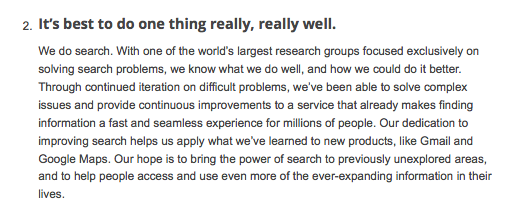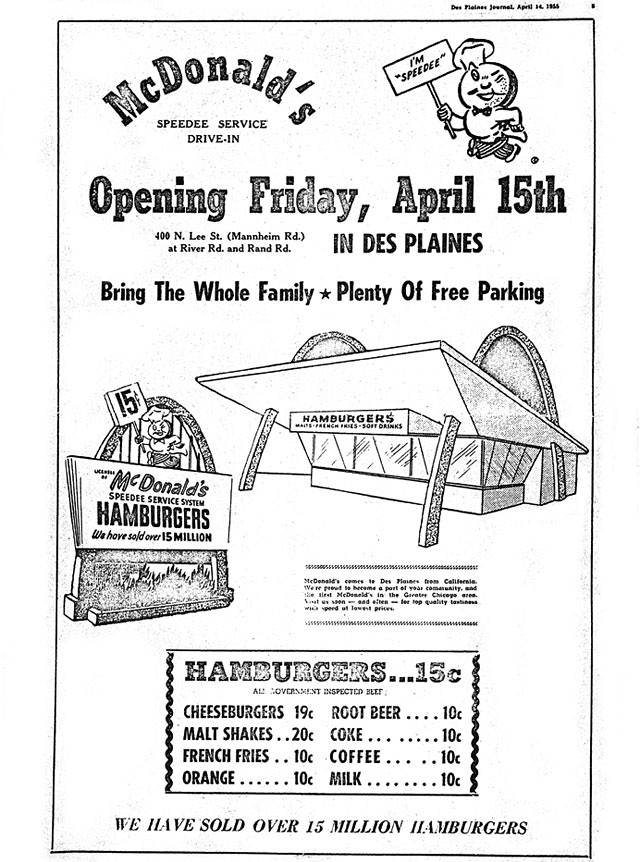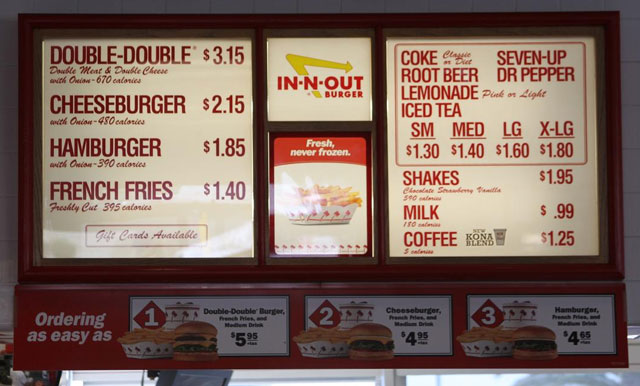
Do One Thing Well. Seriously, Just One Thing

 The idea of doing one thing and one thing only isn’t a new concept, yet it all too often seems to be in the world of startups.
The idea of doing one thing and one thing only isn’t a new concept, yet it all too often seems to be in the world of startups.
Allow me to take you back to 1954, when a gentleman named Ray Kroc became the first franchisee of a former BBQ shop opened by Mac and Dick McDonald. When Mr. Kroc opened this first McDonald’s a year later, this is what he served:

Fast forward to today, where the vast majority of US hamburger memes revolve around the actually quite delicious In-N-Out Burger. For the uninitiated, here is their menu today:

Hmmm. The more charitable among us would call the modern-day In-N-Out menu an homage to the McDonald’s menu that was the foundation of its massive worldwide success. What both menus have in common is a perfectly synergistic simplicity.
McDonald’s 1950s initial success and In-N-Out’s current high flying are both a product of serving no-nonsense staples of American burger lore: burgers, shakes, sodas, fries. The McDonald’s of 60 years ago and the In-N-Out of today do not sell nuggeted chicken shards. They did and do a few things and did and do them immensely well.
Pause here and ask yourself whether this is a thesis that is difficult to understand. I contend that it is not.
In the startup world, one of the longest snakes in the ongoing game of Snakes and Ladders is the omnipresent temptation to do too many things. Perhaps it is in the DNA of the entrepreneur to take an idea that she sees as wonderful and to build it out vertically and horizontally, to test its elasticity and see how high it might bounce.
But this is an often game-ending trap, an unending schuss that leads to the city square of oblivion. In what is a clear majority of startup postmortems, the absence of simplicity and focus are cited as leading causes of the fatality of the venture.
I have long believed that doing one thing and doing it very well is infinitely more difficult than building thing upon thing, creating an absurd set of features and things that usually take you away from what you were once building. I like to think of this as the McRibization of your startup. While sometimes a tender and tasty little thing, it’s not what you set out to build, it’s not what made you popular in that fleeting moment before you got greedy. It’s not what you intended to be in your purest visions of what today might look like.
Starting something, while not easy, doesn’t have to be rocket science. Carved down to its absolute fundament, a startup needs to begin by doing one thing very well. Were McDonald’s launching in 2014 (especially is they had an app, and, hey, who doesn’t) they’d be considered by many a startup. And we’d go on and on about what people think they do unbelievably well – make a burger, fries, and shakes. That’s why millions served became billions served and that’s why when you mention In-N-Out to Canadian entrepreneurs who’ve spend time in places such as San Francisco, they positively swoon.
Lest we forget that our friends at Google espouse this self-same thing in their corporate philosophy. “It’s best to do one thing really well” is one of their 10 pillars. And while I like this one just a bit less than “You can be serious without a suit,” it’s all kinds of awesome and should be somewhere on the real or virtual wall of every startup.
So the next time you think about adding that killer new feature or just one bell and just one whistle, pause for a moment and think about what the one thing you do really, really well actually is. Then just do that one thing even a bit better.
Photos: Kottke.org




